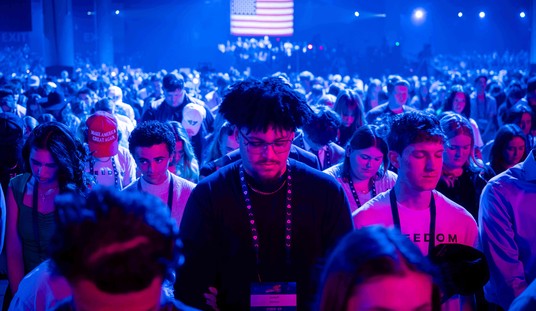
Alleged mastermind of the 9/11 terror attacks, Khalid Sheikh Mohammed, has signaled through his attorneys, that he may become more “cooperative” if the U.S. government agrees to spare him from the death penalty at a Guantanamo Bay military commission.
By ‘cooperation,’ his attorneys are referring to the lawsuit filed by victims of the 9/11 attacks against the Saudi Arabian government for their part in “coordinating the attacks.”
Mohammed’s offer was contained in a letter filed on Friday at the U.S. District Court in Manhattan by the plaintiffs’ lawyers. The lawsuit seeks unspecified billions of dollars in damages from the Saudi government, which denies involvement.
The Wall Street Journal reports:
In the lawsuit against Saudi Arabia, plaintiffs’ lawyers had requested depositions from three of the five Guantanamo detainees accused in the Sept. 11 conspiracy. In the Friday filing, a status letter to U.S. Magistrate Judge Sarah Netburn, the lawyers wrote that earlier Friday, Mohammed’s counsel told them their client wouldn’t consent to a deposition “at the present time.”
Mohammed’s lawyer said, however, that “the primary driver” of the decision was the “capital nature of the prosecution” and that “[i]n the absence of a potential death sentence much broader cooperation would be possible,” according to the filing.
…
An attorney for Mohammed’s nephew and co-defendant, Ali Abdul Aziz Ali (who also is known as Ammar al-Baluch), said there had been changes in the defendants’ positions.
“I think [Mohammed] feels ready and willing” to assist the Sept. 11 victims’ lawsuit, “but I think he feels he needs to get through” the death-penalty question first, said the lawyer, Alka Pradhan.
Years of reflection seem to have changed Mohammed’s position regarding “martyrdom.” During a hearing held in June of 2008, a military judge said this was to be a “death-penalty case.” Mohammed objected. He said, “It is a martyr case. This is what I wish. I’ve been looking to be martyred for a long time.”
A source told the Wall Street Journal that, “A lot has happened in the past 10 years. The 9/11 defendants are not as interested as they once were in martyring themselves.”
In 2017, the proceedings at Guantanamo were being overseen by the Department of Defense’s then Director of Military Commissions, Harvey Rishikof.
According to the Wall Street Journal:
Rishikof began exploring a potential plea bargain with the Sept. 11 defendants that would exchange guilty pleas for life sentences, according to court documents and people familiar with the case.
Mr. Rishikof is said to have been concerned that the prosecution had been undermined by the torture inflicted upon Mohammed and other defendants at secret Central Intelligence Agency facilities overseas. That issue has mired the cases against them in years of hearings and raised the possibility that a military or federal court could punish government misconduct by barring the death penalty.
After word spread of plea discussions, Mr. Rishikof was fired by then Defense Secretary Jim Mattis for what Mr. Mattis said were unrelated reasons.
The source said it had been Rishikof’s hope that if the death penalty was removed, the 9/11 defendants would speak more freely about the attacks. He believed this might provide “closure” for the victims and their families.
I’ll open this one up to our readers. Should the U.S. spare these men the death penalty in exchange for their testimony against the Saudi Arabian government?













Join the conversation as a VIP Member